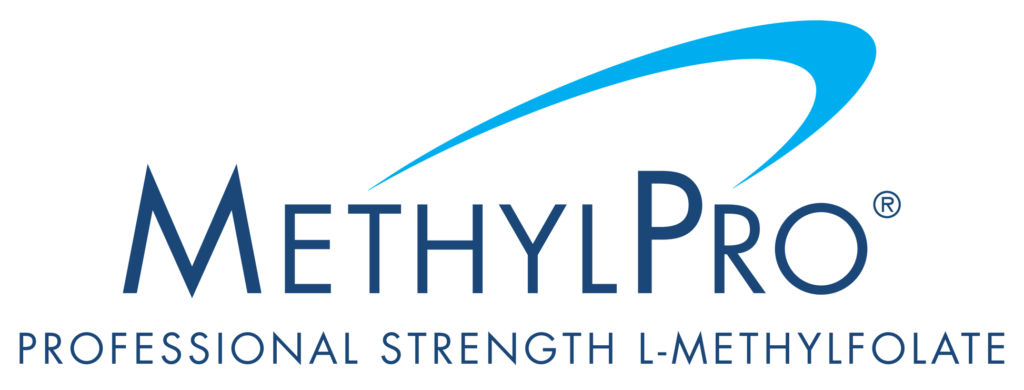How Does this Affect My Health?
Genetics plays a crucial role in how our bodies process essential nutrients, including folate. The MTHFR (methylenetetrahydrofolate reductase) gene provides instructions for making an enzyme that converts folate into its active form, L-methylfolate. However, mutations in the MTHFR gene can reduce this enzyme’s efficiency, impacting overall health. One of the most common variations is a heterozygous MTHFR gene mutation. These individuals have inherited one normal and one mutated copy of the gene. It is possible to inherit two different mutations, but this would be referred to as a compound heterozygous mutation, which is far less common.
If you’re here, you’ve likely already received genetic testing results. We want to help you better understand what your heterozygous MTHFR mutation means for your health. Understanding how this affects folate metabolism is essential, especially when considering the benefits of L-methylfolate supplementation.
What is MTHFR?
The MTHFR gene codes for the MTHFR enzyme. This enzyme is necessary for converting any folate from food you eat, or synthetic folic acid, into L-methylfolate. L-Methylfolate is the active form of folate that your body needs for numerous processes in the body. These processes include healthy DNA replication, red blood cell production, neurotransmitter synthesis, and balancing homocysteine levels in the body— just to name a few.
Below is a diagram that shows where in the folate cycle MTHFR participates. It illustrates how the methylation cycle can be held up if the MTHFR enzyme is inefficient.
As you can see from the diagram, inefficient MTHFR enzyme activity can lead to low L-methylfolate levels. This can be true, even if you are taking in plenty of dietary folate or folic acid. Luckily, supplementing with L-methylfolate directly circumvents this hold up in the folate cycle.
Basic Genetic Inheritance of MTHFR Mutations
Each person inherits two copies of the MTHFR gene, one from each parent. When someone carries a heterozygous mutation, they usually have one functional copy and one altered copy. The most well-studied mutations include:
- C677T Mutation: Individuals with one copy of this mutation (heterozygous) may have a 30–40% reduction in MTHFR enzyme activity [1].
- A1298C Mutation: Heterozygous carriers typically experience a less significant impact on enzyme function, but when combined with a C677T mutation (compound heterozygous mutation), folate metabolism may be further impaired [2].
While having a single mutation does not lead to severe health conditions, it can contribute to suboptimal folate metabolism. This increases the risk of functional folate insufficiency.
Clinical Data on Reduced Folate Metabolism in MTHFR Mutations
Research suggests that individuals with MTHFR mutations may have difficulty converting folic acid (the synthetic form of folate) into its bioactive form, L-methylfolate. Some key findings include:
- A study in Biomolecules found that individuals with heterozygous MTHFR C677T mutations had lower plasma folate levels and higher homocysteine levels. This is a marker for cardiovascular risk [3].
- Research published by the NIH: National Library of Medicine indicates that people with MTHFR mutations may require higher folate intake to maintain optimal homocysteine levels and overall methylation processes [4].
- A JAMA Psychiatry study suggested that individuals with reduced MTHFR function may have a higher prevalence of mood issues, as folate is crucial for neurotransmitter synthesis and brain function [5].
Why L-Methylfolate Is the Best Supplement for MTHFR Mutations
For those with an MTHFR mutation, supplementing with L-methylfolate bypasses the inefficient enzymatic conversion process, allowing the body to absorb and utilize folate effectively. Key benefits of L-methylfolate supplementation include:
- Normal Methylation: Supports DNA synthesis, detoxification, and neurotransmitter production [6].
- Cardiovascular Health: Helps regulate homocysteine levels, bolstering cardiovascular health [7].
- Mental Wellness Support: Plays a vital role in mood regulation and cognitive function [8].
- Pregnancy Support: Ensures proper nutrition for fetal development, and maternal health [9].
Final Thoughts
A heterozygous MTHFR mutation may reduce the body’s ability to process folate efficiently, potentially affecting cardiovascular, neurological, and overall health. Since standard folic acid supplementation may not be effective for those with this mutation, choosing L-methylfolate provides a direct and bioavailable solution.
If you have a heterozygous MTHFR mutation or are concerned about folate metabolism, speak with your healthcare provider about the benefits of L-methylfolate to optimize your health.
References
- https://www.ahajournals.org/doi/10.1161/circulationaha.114.013311
- https://genesight.com/white-papers/what-is-the-clinical-significance-of-the-mthfr-a1298c-polymorphism/#:~:text=The%20methylenetetrahydrofolate%20reductase%20(MTHFR)%20enzyme,4
- https://www.mdpi.com/2218-273X/12/8/1086
- https://pubmed.ncbi.nlm.nih.gov/8616944/
- https://jamanetwork.com/journals/jamapsychiatry/fullarticle/207557
- https://link.springer.com/chapter/10.1007/978-3-030-30730-1_18
- https://pmc.ncbi.nlm.nih.gov/articles/PMC9832224/
- https://www.sciencedirect.com/science/article/pii/S0753332221013287
- https://www.scirp.org/journal/paperinformation?paperid=111697

